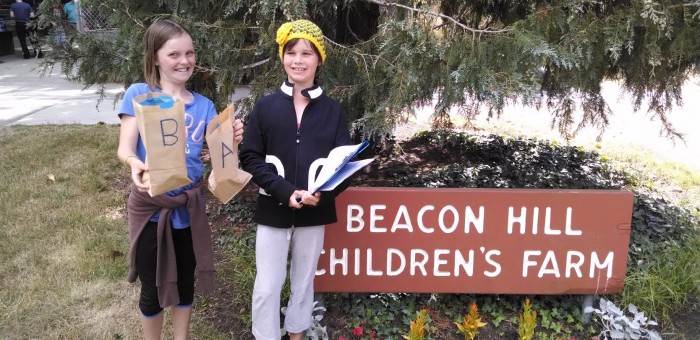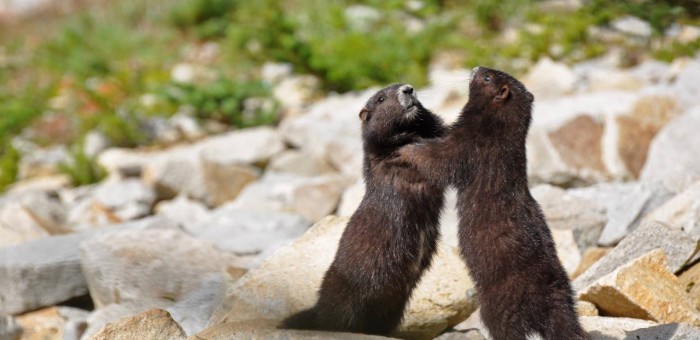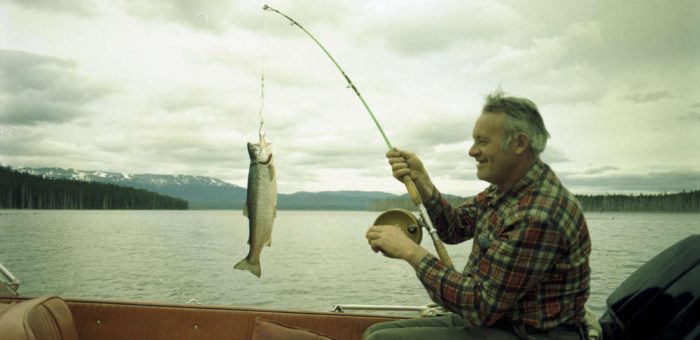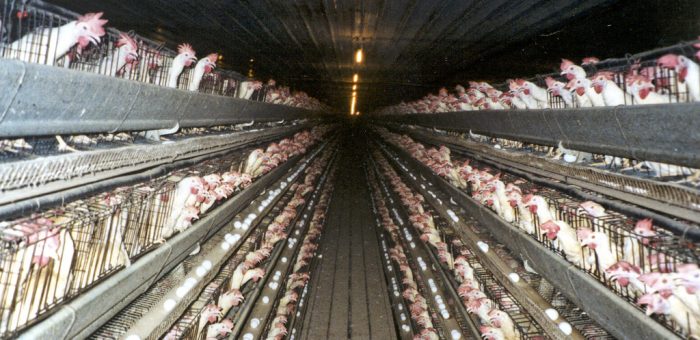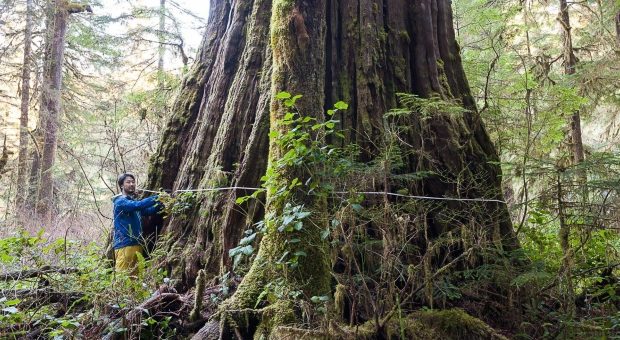Uncategorized
Paying tribute to a remarkable young woman
Today in the legislature I had the distinct pleasure of hosting Jillian McCue on a job shadow. Jillian is the remarkable young woman who spent three years trying to get Saanich to allow her to have miniature goats in her back garden. I took the opportunity to make a two minute statement highlighting her inspirational achievements.
Below I reproduce the text and video of my speech.
Text of my Statement
A. Weaver: I’d like to pay tribute to an inspirational young woman who I have the distinct honour of hosting on a job shadow today. Her name is Jillian McCue, a 13-year-old grade eight student at Gordon Head Middle School.
I first met Jillian in April 2013 during a meet-and-greet that I was attending in the lead-up to the last election. Midway through the event, Jillian, then only nine, entered and requested that I ask the audience to sign her petition. I didn’t know who she was or what the petition was about, so I suggested she make the pitch directly. It was compelling, grounded in evidence, and eloquently and passionately delivered. Jillian was setting out to change the fact that Saanich municipal bylaws did not permit miniature goats to be kept in backyards, and she convinced every single person in the room to sign the petition.
She’d done her homework. She learned that in 2007, Seattle city council approved keeping miniature goats as pets. She undertook her own research to disarm the potential criticism that goats would be smelly. Participants in her goat-poo smell study were asked to smell two bags: one containing dog poop and the other containing goat poop. They were then asked to rate the smelliness on a Likert scale of 1 to 5. Her survey data confirmed her hypothesis. On average, dog droppings smell twice as bad as goat poop.
Armed with her research, a petition signed by 132 people in her neighbourhood and well-structured PowerPoint slides, Jillian made a presentation to Saanich council. She was peppered with questions that she easily handled, and Saanich subsequently referred the matter to no less than three separate committees. So began the grueling municipal approval process.
Jillian persevered.
She presented to each of the committees and fielded many questions. She responded to numerous media requests. Three years later — yes, that’s three years — Saanich finally agreed to allow a pilot project to be undertaken. Jillian was able to obtain two miniature goats.
After watching Jillian navigate the complexities of municipal politics, I’m convinced that her determination, skills and ability to take on big challenges could allow her to achieve one of her life goals. That is to be the Prime Minister of Canada.
Video of my Statement
Introducing Endangered Species Legislation for British Columbia
Today in the legislature I introduced a private member’s bill entitled Bill M 225 — Endangered Species Act, 2017. This Act builds off the Ontario Endangered Species Act and the B.C. version of their legislation tabled by the BC NDP in 2011. My office was grateful to work with Gwen Barlee from the Wilderness Committee and environmental lawyer Sean Nixon from EcoJustice to close loopholes and make the bill more proactive and preventative. I also incorporated language from the United States Federal Endangered Species Act to make it more effective and comprehensive. Of note is the addition of a section that mirrors the US Endangered Species Committee, known as the “God Squad” because of the substantial impact of its decisions on the natural world.
Below I reproduce the text and video of the speech I gave as I introduced the bill. I also include the accompanying media release.
Text of my Introduction
A. Weaver: It gives me great pleasure to move that a bill intituled Endangered Species Act, 2017, of which notice has been given, be introduced and read a first time now.
Motion approved.
A. Weaver: I’m pleased to be introducing a bill intituled the Endangered Species Act, 2017. The world is in the midst of an extinction crisis, and humans are the driving force. British Columbia is the most biodiverse province in Canada, but it is also the home to more at-risk species than any other province. Half of British Columbia’s assessed species are deemed at risk.
In addition to identifying, protecting and rehabilitating at-risk wildlife populations and habitats, this act seeks to introduce proactive measures that will prevent healthy species from declining in the first place. The act substantively expands upon the Ontario Endangered Species Act, the B.C. version of their legislation tabled by the B.C. NDP in 2011 and the American federal Endangered Species Act. Under the guidance of lawyers and advocates who have worked tirelessly on this issue, I was able to close problematic loopholes and make this act more proactive, transparent and effective.
Of note is the addition of a section that changes how exemptions are made. Under this new section instead of being left to the discretion of the minister, if government or industry want to take actions that will result in a species going extinct, it is required to go through an independent publicly disclosed board review.
I move that the bill be placed on the orders of the day for second reading at the next sitting of this House after today.
Bill M225, Endangered Species Act, 2017, introduced, read a first time and ordered to be placed on orders of the day for second reading at the next sitting of the House after today.
Video of my Introduction
Media Release
Weaver introduces Endangered Species Act
For immediate release
February 27th, 2017
VICTORIA B.C. – The entire world in is the midst of an extinction crisis and humans are the driving force.
“In Canada, British Columbia is the most biodiverse province, but it is also home to more at-risk species than any other province,” says Andrew Weaver, Leader of the B.C. Green Party. “Half of B.C.’s assessed species are deemed at risk.”
“B.C.’s biodiversity is globally significant, rapidly declining, and lacking any substantial legal protection – this Act aims to change that by bringing into force standalone legislation to safeguard British Columbia’s native wildlife species and their habitat.”
In addition to identifying, protecting, and rehabilitating at-risk wildlife populations and habitats, this Act seeks to introduce proactive measures that will prevent healthy species from declining in the first place.
“Compared to reactive government efforts to intervene in a habitat already out of balance, preserving healthy ecosystems is easier, more cost effective, and avoids needless animal suffering,” says Weaver. “Furthermore, as the global climate warms and precipitation patterns shift, having a complete ecosystem within which animals and plants can try to adapt will be essential.
“The Federal Species at Risk Act and B.C.’s current non-binding patchwork approach to protecting wildlife is clearly not working. The biodiversity in our province is prodigious, but it is not without risk. We will lose it if we do not act.”
This Act builds off the Ontario Endangered Species Act and B.C. version of their legislation tabled by the B.C. NDP in 2011. It incorporates language from the United State Federal Endangered Species Act to make it more effective, proactive, preventative, and comprehensive. Of note is the addition of a section that mirrors the US Endangered Species Committee, known as the “God Squad” because of the substantial impact of its decisions on the natural world.
– 30 –
Media contact
Mat Wright, Press Secretary
+1 250-216-3382 | mat.wright@leg.bc.ca
Introducing Right to Roam legislation in British Columbia
Today in the legislature I introduced a private member’s bill entitled Bill M223 — Right to Roam Act. This Bill reestablishes the rights of British Columbians to access public lands, rivers, streams, and lakes, and to use these spaces to fish, hike and enjoy outdoor recreation.
Increasingly, British Columbians are being fenced out of wild areas that have been enjoyed by the public for generations. One particularly high profile example involves public access to Minnie, Stoney and other lakes surrounded by Douglas Lake Ranch spread out over more than 500,000 acres. Approximately 365,000 acres are already crown land with full public access. But concern over access to several lakes was raised when Stoney Lake Road was suddenly gated in the late 1970s and subsequently locked in the early 1980s.
Below I reproduce the text and video of the speech I gave as I introduced the bill. I also include the accompanying media release.
Text of my Introduction
A. Weaver: I move that a bill intituled the Right to Roam Act, 2017, of which notice has been given, be introduced and read a first time now.
Motion approved.
A. Weaver: I’m pleased to be introducing a bill intituled the Right to Roam Act, 2017.
The ability to access and experience nature is a right for all British Columbians, and we must protect it. This bill will re-establish the rights of British Columbians to access public lands, rivers, streams and lakes and to use these spaces to fish, hike and enjoy outdoor recreation.
Hunting, fishing and outdoor recreation are a pivotal part of British Columbia’s heritage and form an important part of the fabric of present-day life in British Columbia. They are also vital to the understanding, conservation and management of fish and wildlife in our province.
Increasingly, however, British Columbians are being fenced out of wild areas that have been enjoyed by the public for generations.
One particularly high profile example involved public access to Minnie, Stoney and other lakes surrounded by Douglas Lake Ranch, spread out over more than 500,000 acres. Public access was prevented when Stoney Lake Road was suddenly gated in the 1970s and subsequently locked in the 1980s. This bill, which is built on a combination of B.C.’s existing Hunting and Fishing Heritage Act and Nova Scotia’s Angling Act, aims to address and prevent such conflicts.
I move that the bill be placed on the orders of the day for second reading at the next sitting of the House after today.
Bill M223, Right to Roam Act, 2017, introduced, read a first time and ordered to be placed on orders of the day for second reading at the next sitting of the House after today.
Video of my Introduction
Media Release
Weaver introduces Right to Roam Act
For immediate release
February 27th, 2017
VICTORIA B.C. – Locked gates on back roads are increasingly restricting access to wild lands in the province, making it harder for outdoors people to go hunting, fishing or hiking. A new bill tabled Monday by Andrew Weaver, Leader of the B.C. Green Party, would put a stop to that practice.
“British Columbians are increasingly being fenced out of the province’s wild lands. The ability to access and experience nature is a public right, and we must protect it,” says Weaver, who is the MLA for Oak Bay-Gordon Head. “Free public access to the outdoors is vital to people’s health and well-being, but it is also vital to the health and well-being of our environment. People protect what they know and love. If we become disconnected from our environment we risk disengaging with the fight for its future.”
In many regions of the province, the only way to access wild Crown lands is via logging roads, public back roads, or across privately owned forests and uncultivated areas. While casual public use of these accessways has not been an issue in the past, there is a growing trend of neighbouring landowners and forestry companies locking people out. Some are building fences and installing locked gates to block access altogether, others are implementing strict schedules or access fees. In extreme cases, British Columbians are getting arrested for trespassing while walking to public lakes they have been fishing for generations.
The Nicola Valley Fish and Game Club, a non-profit association dedicated to the local preservation and management of habitat and wildlife, for example, has spent years in a legal battle with the owner of the Douglas Lake Ranch over the public right to fish in public lakes..
“The Right to Roam Act aims to address and prevent conflicts like the Douglas Lake Ranch case. Nature in British Columbia should be open to all, not to just the privileged few,” says Weaver.
This Act was built off the existing BC Hunting and Fishing Heritage Act and the Nova Scotia Angling Act. It includes a few additional amendments, made with reference to a UVic Environmental Law Clinic report about enhancing public access to wild lands.
“By allowing people to cross uncultivated wild land to access public lands, rivers, streams, and lakes, the Right to Roam Act aims to re-establish the rights of British Columbians and to use these spaces to fish, hike and enjoy outdoor recreation.”
– 30 –
Media contact
Mat Wright, Press Secretary
+1 250-216-3382 | mat.wright@leg.bc.ca
Introducing a petition to ban inhumane cage confinement in the egg industry
 Today in the legislature I introduced Ned Taylor (photographed to the right with my colleague Vicki Huntington) who started a petition to ban battery cages in British Columbia. Ned Taylor was joined by his father Matt Taylor and by a friend Jordan Reichhart. I subsequently tabled his petition in the legislature.
Today in the legislature I introduced Ned Taylor (photographed to the right with my colleague Vicki Huntington) who started a petition to ban battery cages in British Columbia. Ned Taylor was joined by his father Matt Taylor and by a friend Jordan Reichhart. I subsequently tabled his petition in the legislature.
As I mentioned in my introduction, there is only one step of separation in Victoria! Ned’s sister and my daughter went to elementary school together and his father’s sister and I both graduated from Oak Bay Secondary School in 1979!
Below I reproduce the text and video of both the guest and petition introductions.
Video of Guest Introduction
Text of Guest Introduction
A. Weaver: It gives me great pleasure to introduce three guests today, two of whom are constituents. The first is Ned Taylor — he’s a Reynold’s Secondary School student and the author of a petition I’ll be introducing momentarily — along with father, Matt Taylor, and his friend Jordan Reichhart.
I might say for those of you who are from Victoria, you will know there is no such thing of two steps of separation from people. There is only one. It turns out Ned’s sister was in grade one and kindergarten with my daughter and that his father’s sister went to high school with me and graduated in 1979 from Oak Bay.
Would the House please make them feel very welcome.
Video of Petition Introduction
Text of Petition Introduction
A. Weaver: I’m very pleased to stand to present a petition against the use of inhumane cage confinement in the egg industry. This petition, which has over 33,000 signatures, was started and organized by Ned Taylor, a constituent who’s attending grade 12 at Reynolds Secondary School in Victoria. In Ned Taylor’s words, this petition stands firmly against battery cages, enriched cages and all other cages in the egg industry because chickens deserve to roam freely for their health and well-being. Battery cages are cages used in our egg industry that confine egg-laying hens for their entire lives. In these cages the hens have no space to move or spread their wings, nor do they have a place to perch.
Reinvesting in British Columbia’s Forest Sector
Despite today’s announcement that $150 million will be invested in reforestation, a wave of unemployment is sweeping across rural B.C. because of government policies that have devastated the province’s once-great forest resource.
Premier Christy Clark now says the appropriate response is to put forest industry people to work building roads and bridges. B.C. really needs a bigger vision than that – especially since the provincial government is complicit in the sector’s mismanagement in the first place.
In the late 1990’s and early 2000’s, a pine beetle infestation erupted. The pandemic was exacerbated by successive B.C. NDP and Liberal governments who pursued policies that created largely monoculture forests. Pine trees grow fast and the government encouraged their use as the “preferred” species for replanting huge swaths of land that had been clear-cut. At the same time, the government’s shortsighted forest fire suppression policies snuffed out fires that would have naturally created a more diversified landscape. (Forest fires play a vital ecological role and, where possible, should be monitored closely but left to safely burn.)
The result: huge plantations of pine trees flourished. As climate change reduced the severity of B.C. winters, they became perfect breeding grounds for pine beetles and the largest beetle attack ever seen in North America was unleashed destroying millions of trees over a massive area. As the epidemic spread, and the health of B.C.’s forests deteriorated, the government was forced to dramatically increasing the allowable cut.
In recent years, the decline of the province’s forests has been masked by the increased cutting of dead trees in so-called salvage logging – but there is no hiding the fact that nearly 60% of the merchantable pine has been destroyed by the beetle invasion. Today, even the dead trees are running out and across rural B.C. forest industry jobs have entered a period of rapid, devastating decline.
Recent labor force statistics show that while the number of jobs in Metro Vancouver are up, there has been a drop in rural B.C. The unemployment rate in Mainland/Southwest B.C. is at 5%, but it is 8.2% in Thompson-Okanagan and 10.5% in North Coast/Nechako. In December, Tolko Industries shut down its Nicola Valley sawmill, taking 203 high-paying jobs out of a small community that will struggle without them.
And that’s just the start of it.
Because of the declining timber supply, the province’s chief forester has been forced to reduce the allowable annual cut (AAC). In Prince George, the AAC is being reduced by 50%. In Quesnel the AAC is dropping to 1.6 million cubic metres from 4 million cubic metres. Last March, in the Merritt Timber Supply Area, the AAC was cut to 1.5 million from 2.4 million cubic metres.
If you reduce the number of trees being cut, there will be a corresponding drop in the number of loggers, truck drivers and mill workers who have jobs. The Truck Loggers Association recently heard at its annual convention that five or six pulp and paper mills will close in the next two to six years. Thousands of jobs will be lost.
Over the past 25 years, NDP and Liberal governments’ have tried to position themselves as defenders of the forest industry, by setting the AAC at unsustainable levels, instead of concentrating on value added and diversification. The consequences of this are now coming home to roost. Premier Clark’s plan to increase spending on infrastructure projects to address the economic divide between rural and urban B.C. may deliver much needed infrastructure but will not create a long term solution.
What rural B.C. really needs are healthy forests and a vibrant small/medium family business culture that can provide sustainable logging, support local economies and provide environmental diversity over the long term. That’s how communities grow and prosper.
We need to rethink our forest management in the context of the realities of the 21st century – global warming; technological change; international competition; not to mention the immediate issues of growing protectionism, and the soft wood lumber dispute. Our tenure structures date back to the 19th century, and our mills have been starved of investment over recent years. The investment that has taken place, has usually replaced people with machines.
Rather than manage our forests, the BC Liberals have toyed with privatizing them. It is worth remembering that in 2001, Mike De Jong, then Minister of Forests, told a meeting of silviculturalists that BC’s Crown forests would be “unrecognizable” when he and the Liberals were finished with them.
Our forests are our collective asset, and we need to ensure that first and foremost, British Columbians are fully benefiting from them, not just corporations and vested interests.
We need to start a new conversation about our forests. We need to ask:
- How do we maximize the benefits of our forest industry?
- How do we get the greatest value from our fibre?
- How do we ensure that our rural and remote communities are included in the benefits?
- What is the most effective long term management structure?
- How do we integrate indigenous people and communities in decision making?
- How are we going to manage sustainability, long term productivity, mitigating climate change and enhancing secondary manufacturing?
A redesign of our forest management is long overdue and would be priority of a BC Green Government. We need to truly end the war in the woods, and ensure that our forests work for all of us.

